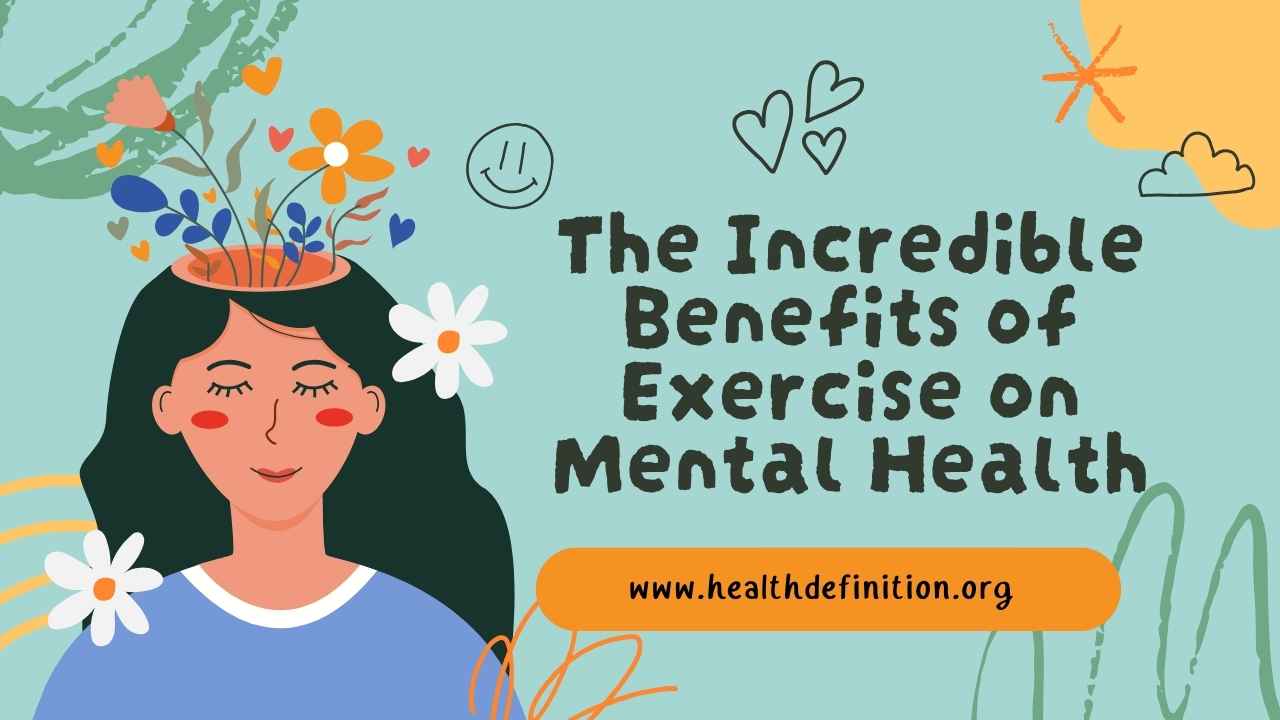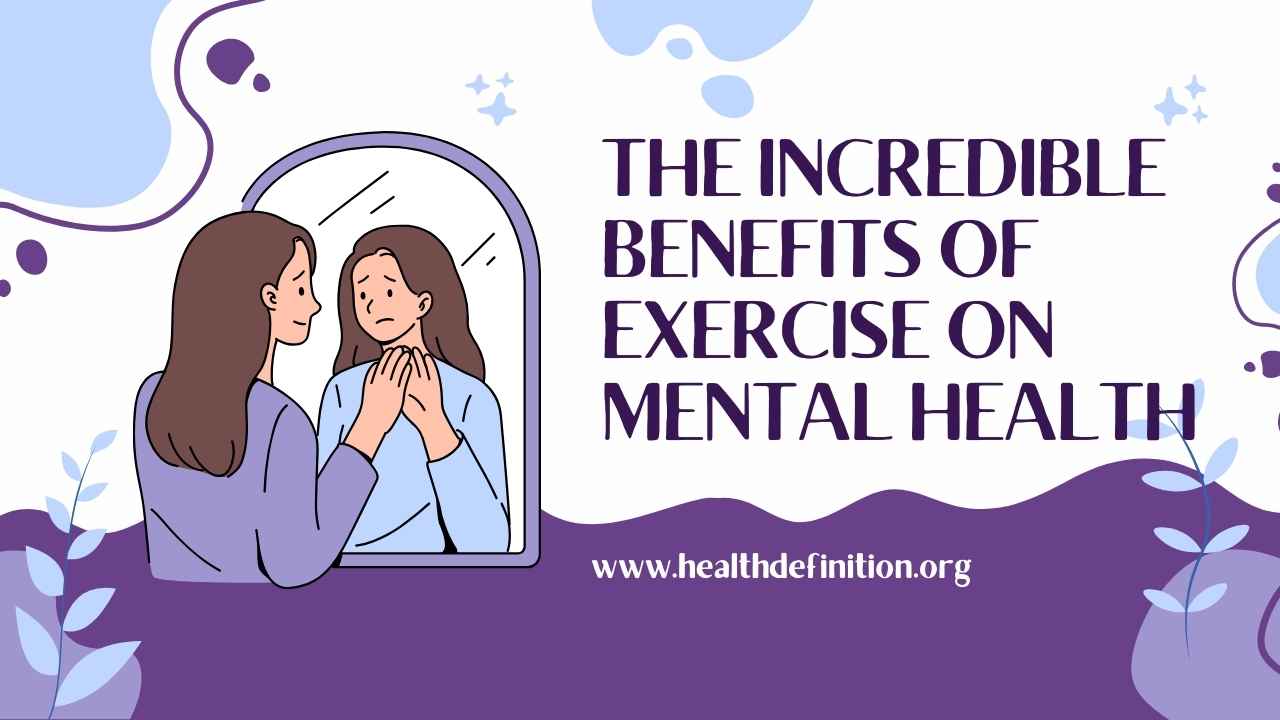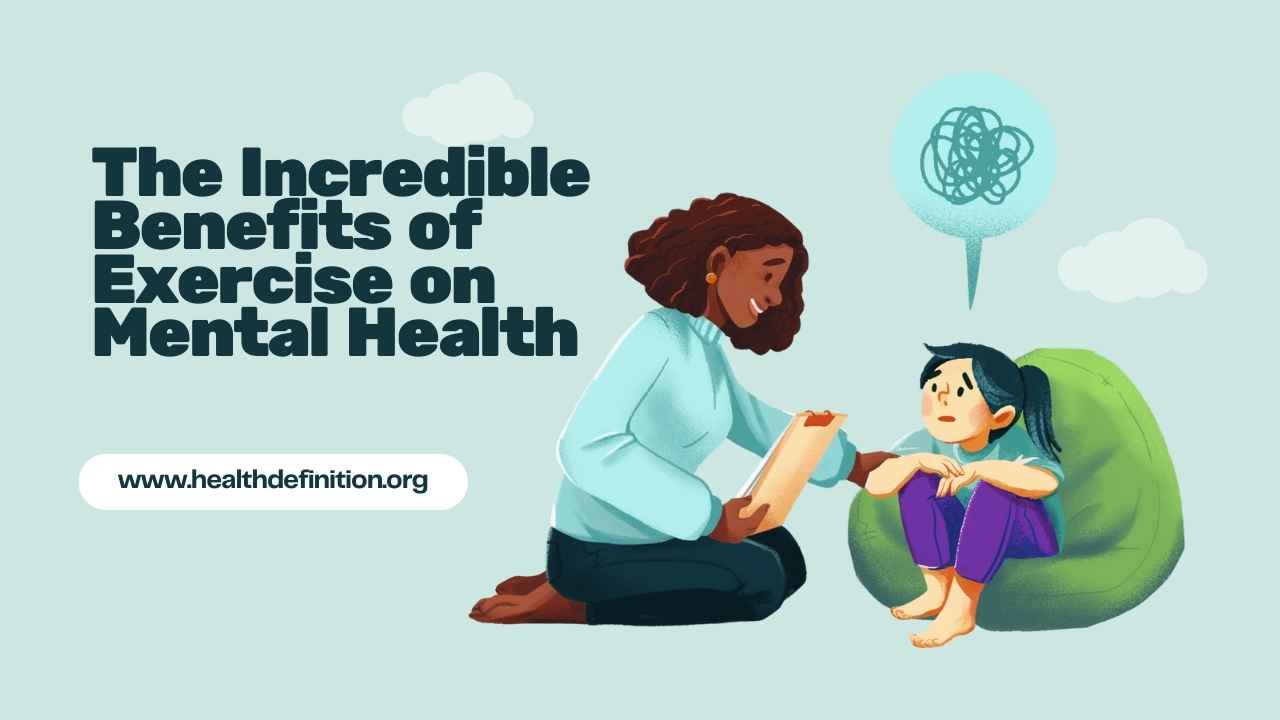
In today’s fast-paced world, Mental Health it’s easy to get caught up in stress, anxiety, and the pressures of daily life. While therapy, medication, and mindfulness are powerful tools, exercise is another natural and often overlooked solution that can significantly boost mental well-being.
Beyond physical health and fitness, regular physical activity offers profound mental health benefits. From lifting your mood to reducing anxiety, exercise acts like a natural antidepressant — no prescription required. Let’s dive deep into why lacing up your sneakers could be one of the best decisions you ever make for your mental health.
Exercise Releases Feel-Good Chemicals
When you engage in physical activity, your brain releases endorphins, often called the body’s “feel-good” chemicals. Endorphins interact with the receptors in your brain that reduce pain perception, similar to how pain medications work — but naturally, without side effects.
Alongside endorphins, exercise also boosts the production of serotonin and dopamine, neurotransmitters that regulate mood and promote feelings of pleasure and satisfaction. This natural chemical cocktail is one of the reasons why you often feel more positive and energized after a workout.
Reduces Symptoms of Depression and Anxiety
Numerous studies show that exercise can be as effective as antidepressant medications for some people. Regular physical activity helps regulate brain chemistry, reduces inflammation, and promotes neural growth — all critical factors in combating depression.
Moreover, exercise acts as a healthy distraction. It allows you to break the cycle of negative thoughts and worries that often fuel anxiety and depression. Whether it’s a brisk walk around your neighborhood, a session of yoga, or a vigorous gym workout, moving your body can provide immediate relief from mental turmoil.

Improves Sleep Quality
Sleep and mental health are closely intertwined. Poor sleep can contribute to mental health issues, and mental health problems can make sleep more difficult. The good news? Exercise helps regulate your circadian rhythm, making it easier to fall asleep and enjoy deeper, more restorative sleep.
Physical activity raises your core body temperature, and when it drops back down later, it signals to your body that it’s time to rest. People who exercise regularly report falling asleep faster, experiencing better sleep quality, and feeling more refreshed upon waking — all crucial for a healthy mind.
Boosts Self-Esteem and Confidence
Consistent exercise isn’t just about weight loss or muscle gain — it’s about empowering yourself. Achieving fitness goals, no matter how small, fosters a sense of accomplishment. This achievement builds self-esteem, reinforces a positive self-image, and enhances overall confidence.
When you feel stronger and healthier, it naturally reflects in your mindset. You start believing in your ability to overcome challenges, not just in the gym, but in life. This mental resilience is invaluable for maintaining good mental health.
Mental health is the foundation of our emotional, psychological, and social well-being. It shapes how we think, feel, and act in everyday life, influencing the way we handle stress, relate to others, and make choices. Good mental health doesn’t mean feeling happy all the time — it means having the resilience to cope with life’s ups and downs, the flexibility to adapt to change, and the strength to recover from challenges.
Acts as a Stress Buffer
Stress is an inevitable part of life, but how we manage it makes all the difference. Exercise provides a constructive outlet for releasing tension. It also reduces levels of cortisol, the body’s primary stress hormone.
Activities like running, swimming, dancing, or even gardening can have a meditative effect, focusing your mind and reducing feelings of overwhelm. Over time, regular exercisers often find that they’re better equipped to handle life’s ups and downs without becoming emotionally drained.

Enhances Brain Function and Memory
Exercise isn’t just good for your mood — it’s fantastic for your brain, too. Physical activity improves blood flow to the brain, delivering oxygen and essential nutrients that keep brain cells healthy.
It also stimulates the production of brain-derived neurotrophic factor (BDNF), a protein that promotes the growth of new neurons and protects existing ones. This has been linked to better memory, sharper cognitive function, and a reduced risk of neurodegenerative diseases like Alzheimer’s.
In essence, moving your body helps you think more clearly and stay mentally sharp.
Provides Social Connection
Group activities, like joining a yoga class, a running club, or even casual group sports, offer vital social interaction. Human beings are wired for connection, and loneliness can be a major contributor to poor mental health.
Exercising with others builds friendships, creates a sense of community, and combats feelings of isolation. Even a simple smile exchanged on a walking trail can boost your spirits and remind you that you’re not alone.
Creates Healthy Routines and Structure
Mental health thrives on routine and structure. When life feels chaotic or unpredictable, establishing a workout routine can provide a sense of control and stability.
Setting aside specific times for exercise — whether it’s early morning yoga, lunchtime walks, or evening runs — instills discipline and promotes healthier habits across all areas of life, from diet to sleep patterns to time management.
Mental health is the silent force behind every thought, emotion, and decision we make. It shapes how we view ourselves, connect with others, and navigate life’s challenges. Good mental health doesn’t mean the absence of difficulties — it means having the emotional strength and flexibility to manage them. Like physical fitness, mental well-being needs regular care through rest, self-awareness, connection, and resilience-building habits.
How Much Exercise Is Enough?
You don’t need to become a marathon runner or a bodybuilder to experience the mental health benefits of exercise. Experts recommend aiming for at least 150 minutes of moderate-intensity aerobic activity per week — that’s just 30 minutes a day, five days a week.
The key is consistency over intensity. Choose activities you enjoy, mix them up to avoid boredom, and listen to your body. Even small amounts of movement, like 10 10-minute sessions or a short walk, can make a big difference.
Exercise and mental health are deeply connected. Moving your body doesn’t just build physical strength — it nourishes your mind, too. Regular exercise triggers the release of powerful brain chemicals that lift mood, ease anxiety, sharpen focus, and foster resilience. Beyond the immediate feel-good boost, staying active helps reduce symptoms of depression, improves sleep quality, builds confidence, and creates a healthy outlet for managing stress. Whether it’s a brisk walk, a dance class, or a calming yoga session, consistent movement offers a natural, empowering way to support mental well-being and cultivate a more balanced, joyful life.

Final Thoughts
In a world where mental health struggles are increasingly common, exercise stands out as a powerful, accessible, and free tool for healing and thriving. Whether you’re battling anxiety, depression, chronic stress, or simply striving for greater emotional balance, moving your body is one of the most potent prescriptions available.
You don’t need fancy equipment or a gym membership to start. Just step outside, stretch, dance, jog, or cycle. Begin where you are, use what you have, and do what you can. Your mind will thank you for it.
Start today. Move your body, lift your spirit, and rediscover the joy of feeling truly alive.
FAQ about the benefits of exercise on mental health
How does exercise improve mental health?
Exercise boosts mental health by increasing the production of endorphins, serotonin, and dopamine — chemicals that promote happiness and reduce stress. It also helps regulate sleep patterns, reduces anxiety, improves self-esteem, and encourages a sense of accomplishment and resilience.
Can exercise help with anxiety and depression?
Yes! Regular physical activity has been shown to significantly reduce symptoms of both anxiety and depression. Exercise acts as a natural antidepressant by improving brain chemistry, reducing inflammation, and offering a healthy distraction from negative thoughts.
What type of exercise is best for mental health?
The best type of exercise is the one you enjoy and can stick with. Activities like walking, jogging, yoga, cycling, swimming, and dancing are excellent for boosting mental health. Even gentle activities, like stretching or tai chi, can provide powerful mental benefits.
How much exercise do I need to see mental health benefits?
Experts recommend about 150 minutes of moderate-intensity exercise per week — roughly 30 minutes a day, five days a week. However, even shorter bouts of activity can boost mood and mental clarity, especially when done consistently.
How long does it take to feel mental health improvements from exercise?
Many people report feeling better immediately after a single session of exercise, thanks to the instant release of endorphins. For longer-term mental health improvements, consistency is key — noticeable changes often occur within 4 to 8 weeks of regular physical activity.
Bullet Point about Benefits of Exercise on Mental Health
-
Boosts mood by releasing feel-good chemicals like endorphins, dopamine, and serotonin.
-
Reduces symptoms of anxiety and depression naturally, without side effects.
-
Improves sleep quality, helping you fall asleep faster and enjoy deeper rest.
-
Enhances self-esteem and confidence by achieving fitness goals and feeling stronger.
-
Lowers stress levels by reducing cortisol, the body’s main stress hormone.
-
Supports brain health by improving memory, focus, and cognitive function.
-
Promotes social connection through group activities, clubs, or classes.
-
️ Creates healthy routines that add structure and stability to daily life.
-
♂️ Acts as a healthy coping mechanism to manage emotions and daily challenges.
-
Offers immediate and long-term mental health benefits with consistent practice.






